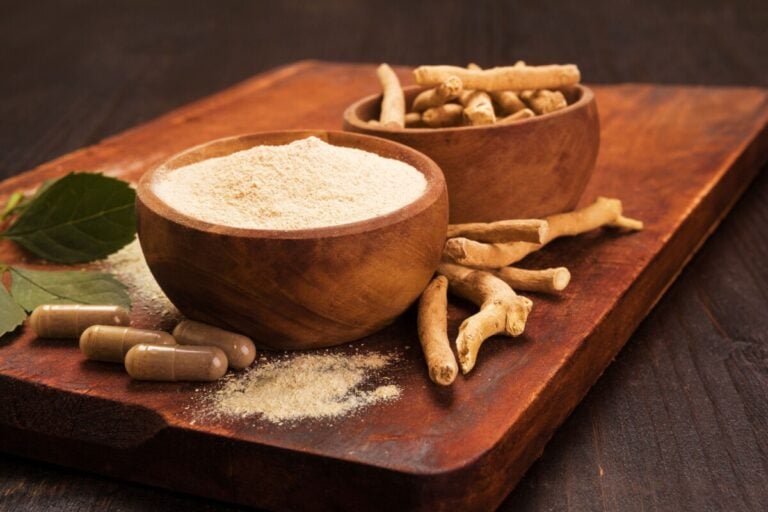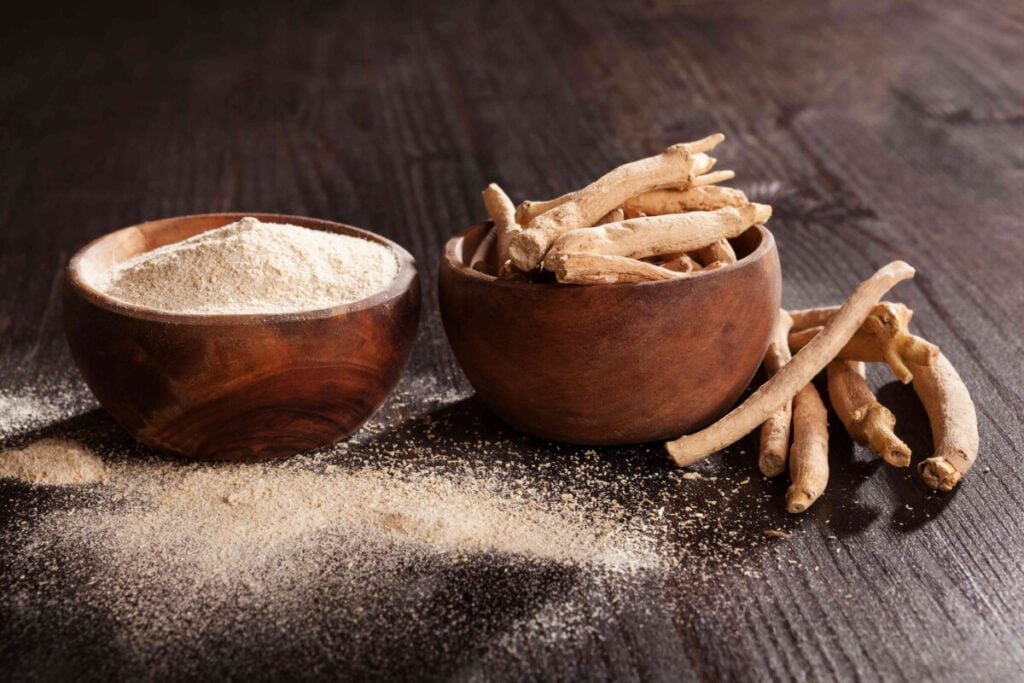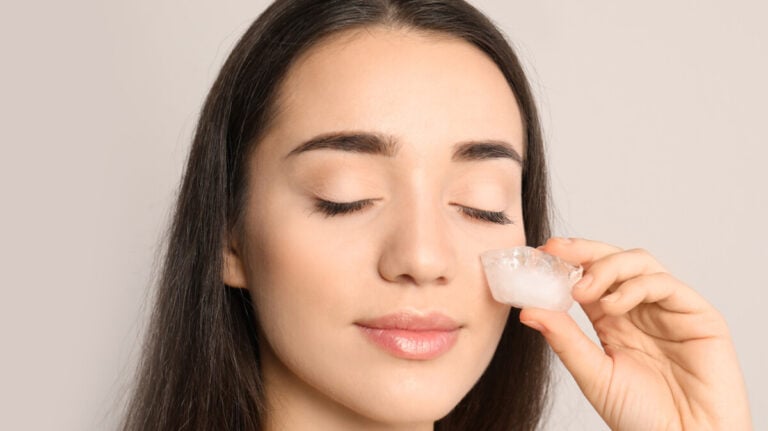Ashwagandha, also known as Indian ginseng or Withania somnifera, is a multifunctional Ayurvedic herb widely used in traditional medicine in India.
This plant has a long history of use in the treatment of various diseases and is considered an adaptogen, capable of helping the body adapt to stress and maintain regular functions. In recent years, ashwagandha has attracted public attention due to its positive effects on the human body.
The effect of ashwagandha on the male body
Prostate health
Studies have shown that ashwagandha may be beneficial for improving prostate health in men. It can help reduce inflammation, improve overall prostate function, and reduce the risk of developing prostatitis and other problems.
Stress management
Stress can have a serious impact on men’s health. Ashwagandha is an adaptogen, meaning that it helps the body adapt to stressful situations and reduces stress levels. Studies have shown that it can reduce levels of cortisol, the main stress hormone, and improve mood and state of mental well-being.
Improving physical endurance
Ashwagandha may help men improve physical endurance and maintain energy during exercise. It stimulates energy production in cells and helps increase oxygen levels in organs and tissues, which helps men achieve better results during physical activity.
The effect of ashwagandha on the body of women
Regulation of hormonal balance
Ashwagandha preparations may be useful for women in combating irregular cycles and symptoms of premenstrual syndrome. It helps balance hormones, reduces inflammation and supports the normal functioning of the reproductive system.
Research finds that ashwagandha can help women improve sexual function, including arousal and satisfaction.
Reducing menopausal symptoms
Many women experience unpleasant symptoms of menopause: sleep disturbances and worsening mood. Ashwagandha may help manage these symptoms by improving endocrine system function and normalizing hormone levels.
Reducing anxiety and stress
Just like men, stress and anxiety levels can be very high in women too. Ashwagandha exhibits anti-stress effects, helping to reduce cortisol levels, improve mood and overall emotional well-being.
Composition
- Withanolides: These are a group of chemical compounds that include anesthesinolides, somniferolides and ashwagandolides. They are the main active ingredients of ashwagandha and have a tonic and adaptogenic effect on the body. Withanolides also help reduce stress, increase energy and improve mental health.
- Sitosterols: Ashwagandha contains various sitosterols such as betasitosterol and stigmasterol, which have anti-inflammatory effects and promote heart health.
- Enzymes: The plant contains enzymes such as peroxidases, catalases and superoxide dismutases, which help protect cells from oxidative stress and free radicals.
- Amino acids: the composition also contains various amino acids, such as glycine, aspartic acid, threonine, tyrosine and others. These amino acids are the building blocks of protein and are important for the normal functioning of the body.
- Flavonoids: The plant contains various flavonoids, including quercetin, kaemferol and luteolin. Flavonoids have antioxidant properties, protect cells from damage and help reduce inflammation.
- Alkaloids: Ashwagandha contains alkaloids such as somniferine, somniferol and ashwagandine, which can have a calming and sedative effect on the body.

The composition of ashwagandha may vary depending on the variety and growing method. Each of these components contributes to the overall integrity of the action of ashwagandha on the human body.
How to take Ashwagandha
Dosage
The dosage of ashwagandha may vary depending on the specific needs and conditions of the body. In general, it is recommended to start with a small dose of approximately 300-500 mg per day and gradually increase it as the body adapts. The maximum safe dose for chronic use is approximately 1200–1500 mg per day (consultation with a doctor is required).
Take with food
Ashwagandha is best absorbed by the body when taken with food. You can add ashwagandha to scrambled eggs, yogurt, and smoothies.
Morning or evening
Some people prefer to take ashwagandha in the morning to gain energy and increase focus throughout the day. Others prefer to take it in the evening to help relieve stress and improve sleep quality. The best way is to try both options and choose the mode that best suits you and your lifestyle.
Systematic approach
Ashwagandha is an adaptogen plant, so all the positive effects can be felt after some time. It is recommended to take regularly for several weeks or months to achieve maximum results. Some studies have shown that the most noticeable changes in the body are observed within 8-12 weeks of regular use.
Why is ashwagandha banned in Russia
The main reason for the ban on ashwagandha in Russia is the legal and regulatory provisions related to the registration and control of food products and food additives. In Russia, to add plant components and herbs to the list of permitted substances, special research, certification and other procedures are required to confirm their safety and effectiveness.
However, it is important to note that the ban on ashwagandha in Russia is not universal and does not indicate its danger to health. It’s just that, until now, it has not received appropriate registration, despite extensive research and evidence of its positive health effects.
Despite the ban, there are alternative herbs and plants that may offer similar effects and health benefits. For example, there are plants that are also adaptogens, such as Rhodiola rosea, Schisandra and Eleutherococcus. They can help the body cope with stress, increase energy and improve mental health.
In addition, there is a wide selection of other natural remedies such as vitamins, minerals, antioxidants and other supplements that can help improve overall health. All these products are allowed in Russia and are offered in pharmacies and specialty stores.
Conclusions
Ashwagandha is a multifunctional plant that has positive effects on humans. In men, it helps maintain prostate health, cope with stress and improve physical endurance. In women, ashwagandha regulates hormonal balance, reduces menopausal symptoms and reduces anxiety and stress levels.
Ashwagandha contains many bioactive compounds such as withanolides, sitosterols, enzymes, amino acids, flavonoids and alkaloids. These components give ashwagandha its unique properties and positive effects on the human body. They help boost energy, improve heart health, immune function, and have anti-inflammatory and antioxidant properties.








